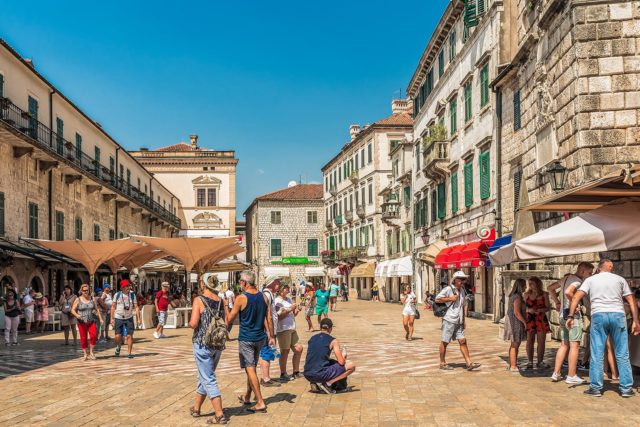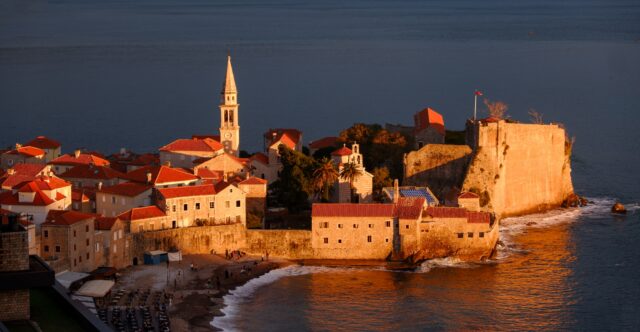Old towns, with their cobblestone streets, historic architecture, and cultural richness, are treasures that connect us to our past. As we strive for progress and modernity, it becomes imperative to consider sustainability in the context of these unique areas. This article written by Marija Lazarevic, MSc in planning and management in tourist destinations, explores the importance of sustainability in Old towns, addressing the challenges they face and suggesting strategies to ensure their preservation for future generations.
First of all, we need to understand Old Towns.
Old towns are not just collections of buildings; they are living reflections of history, embodying the stories, traditions, and craftsmanship of bygone eras. From medieval marketplaces to Renaissance palaces, each cobblestone and brick is a testament to the generations that lived and built before us.
Then, we need to name all the challenges that Old Towns are facing.
- Over-Tourism: The charm of old towns often attracts a surge of tourists, leading to overcrowding, wear and tear on infrastructure, and a strain on local resources.
- Deteriorating Infrastructure: Many old towns face the challenge of maintaining aging infrastructure. Buildings, streets, and public spaces may suffer from neglect, putting the entire area at risk.
- Inadequate Urban Planning: Rapid urbanization and modern development can threaten the delicate balance of old towns. Inappropriate zoning, unchecked construction, and lack of conservation measures can erode the authenticity of these areas.

After naming main challenges, we need to know the importance of sustainability in Old Towns.
- Preserving Cultural Identity: Sustainability in old towns is crucial for maintaining their unique character and cultural identity. By embracing sustainable practices, we ensure that future generations can experience the same charm and authenticity that we value today.
- Enhancing Quality of Life: Sustainable initiatives contribute to a higher quality of life for both residents and visitors. Reduced pollution, green spaces, and pedestrian-friendly zones enhance the overall well-being of the community.
- Economic Viability: Sustainable practices can contribute to the economic resilience of old towns. Eco-friendly tourism, local craftsmanship, and heritage-based activities can stimulate economic growth while preserving the area’s authenticity.

Strategic planning for sustainable development in Old Towns are not the choice but the necessity in today`s world.
- Heritage Conservation: Implement comprehensive heritage conservation plans to safeguard historical buildings, monuments, and public spaces. This includes regular maintenance, restoration projects, and adaptive reuse of old structures.
- Smart Urban Planning: Develop and implement sustainable urban planning strategies that prioritize pedestrian-friendly areas, green spaces, and mixed-use zoning. Consideration should be given to preserving sightlines and maintaining the historic fabric of the town.
- Community Engagement: Involve the local community in decision-making processes. Their insights into the history, traditions, and needs of the area are invaluable for developing sustainable solutions that resonate with the community.
- Tourism Management: Implement responsible tourism practices, including visitor quotas, guided tours, and educational programs. By spreading tourism benefits equitably, old towns can mitigate the negative impacts of over-tourism.
- Green Infrastructure: Integrate green infrastructure such as parks, trees, and sustainable stormwater management systems. These not only contribute to environmental sustainability but also enhance the aesthetic appeal of the old town.
- Energy Efficiency: Encourage the use of energy-efficient technologies in old town structures. Retrofitting buildings with modern, eco-friendly systems can significantly reduce energy consumption and carbon footprint.
And, to conclude: Old towns are not relics of the past; they are living entities that can thrive sustainably into the future. By adopting a holistic approach to sustainability, we can ensure that these historic areas continue to enchant and inspire generations to come. Through responsible planning, conservation efforts, and community involvement, we can strike a harmonious balance between preserving the past and building a sustainable future for old towns worldwide.
Marija Lazarevic, MSc is a founder of the first Montenegrin consulting firm dedicated to sustainable tourism development MariXperience LTD. located in Budva, Montenegro.

